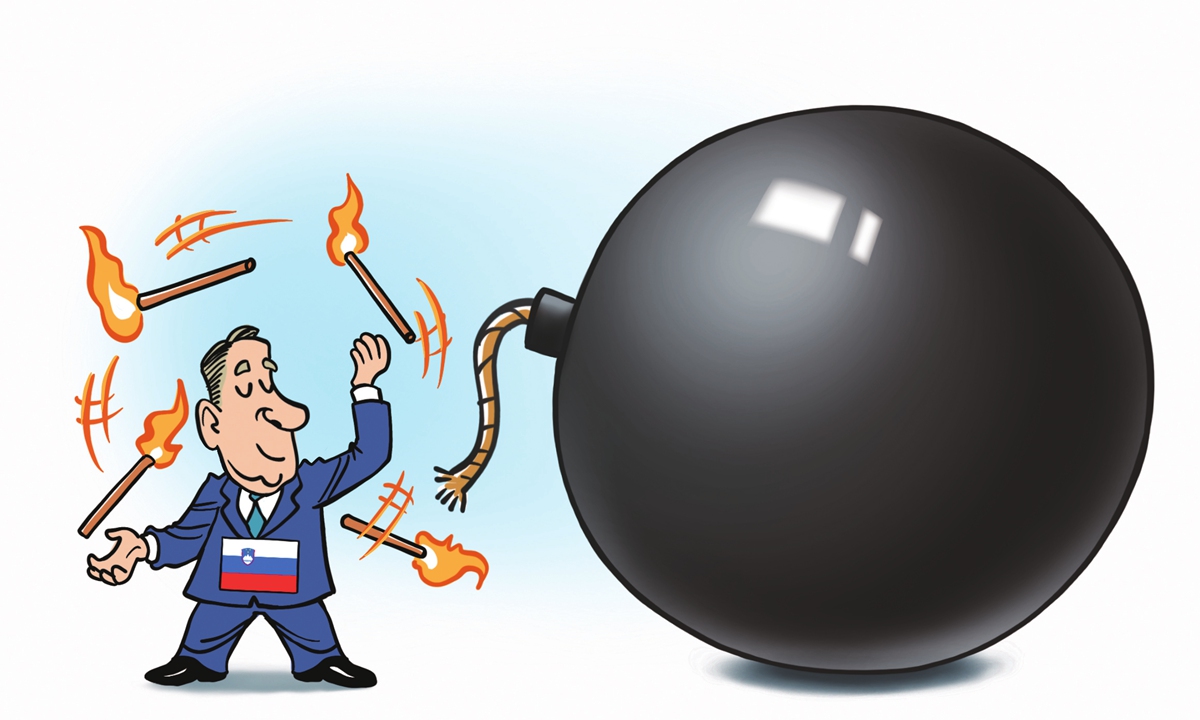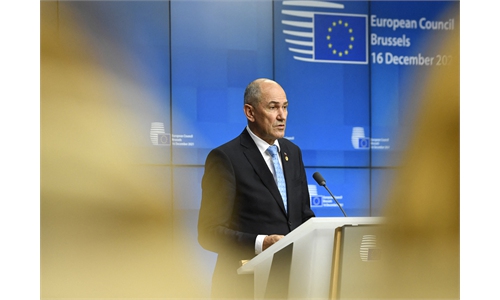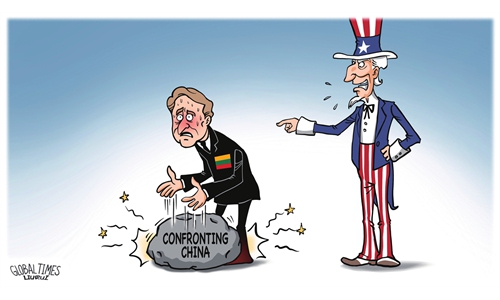
Illustration: Liu Rui/Global Times
After Slovenia's Prime Minister Janez Jansa flagrantly challenged China's core interest over the Taiwan question, Slovenian business groups claimed that the move has already hit the nation's business environment as Chinese partners halt investments in Slovenia.
The Slovenian-Chinese Business Council said that "Slovenian companies in the Chinese market were facing a response from Chinese partners, some of them terminating contracts and exiting the agreed investments," the Slovenian Press Agency reported.
It is not beyond expectation as capital has always been sensitive to uncertainties and risks, and it is a common sense that mutual respect for each other's core national interests is the premise of economic and trade exchanges between countries.
Jansa clearly did not have that in mind as he publicly challenged the one-China principle and referred to the island of Taiwan as a "democratic country" in an interview with an Indian media outlet on January 17.
Before the interview, Jansa had voiced support for Lithuania which torpedoed its relations with China by wrongly allowing the setup of a so-called "Taiwanese Representative Office" in Lithuania, violating the one-China principle.
Obviously, Lithuania set a very bad example in challenging China and Chinese people by violating the one-China principle - which is the basis of establishing diplomatic ties with China.
A report showed that nearly two thirds surveyed Lithuanian respondents do not support their government's flawed China policy, while only 13 percent support it. Lithuanian President Gitanas Nauseda admitted that allowing the "office name" was a mistake, and Lithuanian Deputy Foreign Minister Mantas Adomen said that the ministry only expected minor losses for Lithuanian businesses for approving the office, and, it was wrong.
A recent report by Reuters on Wednesday revealed that Lithuanian officials are discussing whether to ask the authority of the Taiwan island to modify the office name in a bid to thaw the frosty relations with the Chinese mainland.
Slovenia should have learned from Lithuania. Lately, the officials and politicians in Ljubljana have rushed to clarify that Jansa's remarks only represented a personnel opinion and the nation advocates the one-China principle, aiming to put out the fire before it is too late.
The Chinese investors have got a whiff of the dangerous signal, and more pain will likely be felt by Slovenian businesses and society if Ljubljana could not timely get the policies back on the right track. Any move violating the one-China principle and hurting China's core interests will backfire. Slovenia needs to rectify its act quickly.
In fact, China and Slovenia have generally maintained good relations over recent years. In 2017, the two sides inked a memorandum of understanding, marking official participation of Slovenia into the China-proposed Belt and Road Initiative (BRI). Cooperation between the two extends from light jet manufacturing, infrastructure to internet industries.
China is currently Slovenia's largest trading partner outside the EU bloc. In 2021, bilateral trade between China and Slovenia totaled 38.75 billion yuan ($6.13 billion), up 41.3 percent year-on-year. In addition, China had invested over $3 billion in central and eastern European countries directly and over $12 billion indirectly by the end of June 2020.
There's no denying that cooperation between China and other countries has been facing heightened levels of obstruction from the US and its hardcore allies. But there are also abundant examples of cooperation with China which keep delivering benefits, from increasing job opportunities, tax revenues to improving livelihoods of ordinary people.
Central and eastern European countries, including Slovenia, need enhanced interconnectivity and a stable development environment which is in line with their peoples' interests. It is time for those countries and their leaderships to think carefully: one cannot have access to China's huge market and investment, by hurting Chinese people's feeling and supporting Taiwan's secession from China.



